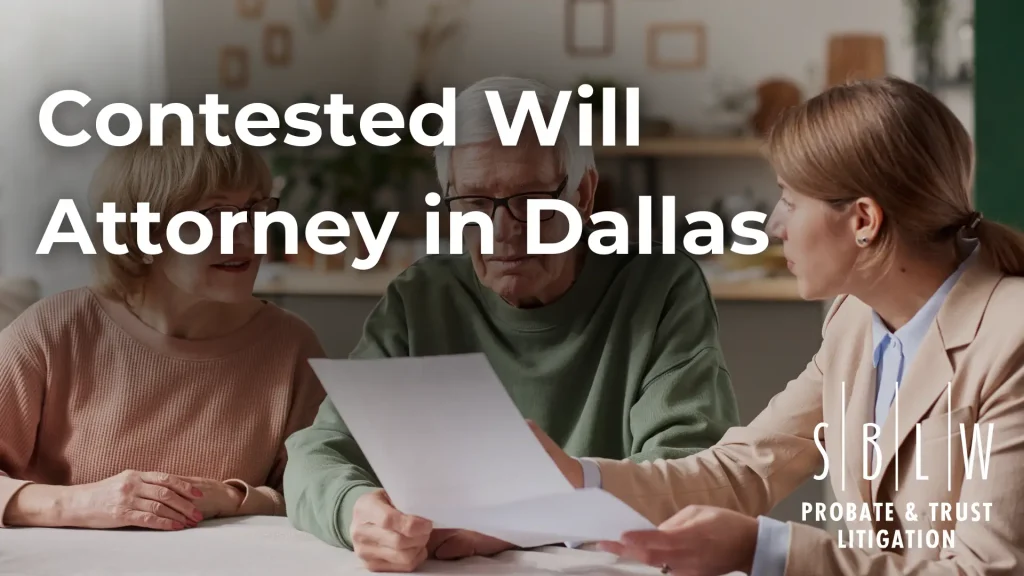
The passing of a loved one is never easy. What happens when the pain of losing someone is amplified by the fact that their will does not include the provisions you expected it to have? What if you suspect that the document does not accurately reflect the final wishes of the person who has just passed on? People may be afraid to challenge the final wishes of the deceased, but there are a number of situations where it is possible and in your best interest to challenge a will.
After the trauma of losing a loved one, it can be hard to imagine having the emotional capacity to legally challenge a will. The experienced legal team at Staubus, Blankenship, Legere and Walker PLLC understands this and offers compassionate service with highly effective and aggressive representation. We know that when it comes to the challenge of contesting a will, the stakes are high.
Our formidable team of seasoned attorneys has substantial courtroom experience in will contests. We have the skills and the deep bench necessary to forcefully and strategically tackle the complexities that come with contesting a will.
If you are considering a legal challenge to a will, contact Staubus, Blankenship, Legere and Walker PLLC at (214) 833-0100 for a consultation. We are the team you can trust to secure your future. If you’re visiting, check Google Maps for directions and read what clients say about us.
What Is a Will?
A will is a legal document that spells out how an individual wants their assets, whether outright or in trust, and who that individual wants to serve as their executor to administer those assets. It is a record of the deceased’s final wishes and how they want those wishes carried out, enabling a person to exercise final control over the things that they accumulated in their lifetime and distribute them to people or causes that were important to them. For many people, it is peace of mind that their loved ones will be taken care of after they are gone.
In Texas, a will must be in writing, signed by the person making the will (called a “Testator”), witnessed by two witnesses at least 14 years of age who sign their names in the Testator’s presence.
Under What Circumstances Can You Contest a Will?
There are a handful of situations where it may be appropriate and a legally viable option to contest a will. In the state of Texas, anyone with a financial stake in the outcome of the estate to be distributed has standing to legally challenge a will. It is then up to that contestant to provide a basis for and prove to the court why the will should not be honored. In general, there are six common situations that an individual may cite as reasons for contesting the validity of a will. These include:
Lack of Testamentary Capacity
In order to be a valid will, the person executing the will must be of sound mind. Texas courts define the term “sound mind” to mean “testamentary capacity”. In order to have testamentary capacity, the person signing the will must have sufficient mental ability to understand that he we is executing a will, understand the general nature and extent of his property, understand who his next kin are and the objects of his bounty, and must have sufficient memory to collect all of these things in his mind long enough to form a reasonable judgment as to what he is signing. The pivotal issue is whether the Testator had testamentary capacity on the date the will was executed. However, evidence of the Testator’s state of mind at other times can be used to prove his state of mind on the date the will was executed. If a will contest is filed prior to the will being admitted to probate, the person offering the will has the burden of proof of establishing that the Testator was of sound mind on that date. If the will has already been admitted to probate at the time that the time the will contest has been filed, the burden of proof as to testamentary capacity is on the contestant.
Evidence of the person’s mental history and diagnosis are important in the will contest, as are the estate planner’s file and the testimony of friends, family and caregivers who spend time around the Testator around the time of the execution of the will.
Undue Influence
A will may also be challenged on the grounds of undue influence. This refers to another individual exercising influence over the testator in order to convince them to execute a will that does not contain the testator’s wishes. Undue influence may occur as a result of manipulation or as a result of blackmail and extortion.
Undue influence has been defined as compelling a Testator to do that which is against his will from fear, the desire for peace, or some feeling which he is unable to resist. It may take many forms, including force, intimidation, duress, excessive importunity, or deception. Undue influence need not be accomplished forcibly and directly, more often being exercised by subtle and devious means, which may occur consistently over a long period of time, or briefly and immediately prior to the execution of the will. The Texas Supreme Court has stated that undue influence may be exercised through the silent power of a strong mind over a weak one. These cases often involve the influencer actively working to alienate the elder from their family, friends, and trusted advisors.
Some of the facts which the court considers in revising claims of undue influence include the weakness of mind and body of the Testator, and their susceptibility to undue influence; whether the will made an unnatural disposition of property, the opportunities which existed for the exertion of undue influence, and whether the person receiving the unnatural gift assisted in the preparation or execution of the will.
Lack of Due Execution
Challenging a will for lack of due execution means that some or all of the steps that are required by law to be taken in the execution of the document were missed. That could mean that the will was not signed by the testator or by another person on behalf of the testator in their direction, or that two credible witnesses who are least 14 years of age failed to sign in the presence of each other and in the presence of the Testator.
Revocation
A will can also be contested on the claim that the testator revoked the will itself prior to death. In order to prove that a will was revoked before death, the individual challenging the will would need to provide evidence, such as a more recent copy of a will, to show that the earlier version had been revoked.
Insane Delusion
A will can be set aside if it was executed as a result of an insane delusion. Regardless of whether a person is normally capable of attending to their business affairs, a person whose mind is warped by the false and unfounded belief of supposed facts that do not exist, and which no rational person would believe, may have their will set aside on the grounds of insane delusion. The terms of the will must be directly influenced by the insane delusion.
Fraud
 A will can be set aside if its execution was induced by fraud, and the person who signed the will acted in reliance on such false representation.
A will can be set aside if its execution was induced by fraud, and the person who signed the will acted in reliance on such false representation.
Any of these factors alone can result in a challenge to a will. In some circumstances, a combination of factors may be at play. For example, in some cases, there may be both a lack of testamentary capacity as well as undue influence at play.
Unfortunately, it is not uncommon for individuals to take advantage of someone who is ill or has cognition issues, such as dementia, and manipulate them into changing their will or making decisions they would normally not choose to make. These individuals can use this to their own benefit and to the detriment of those the testator wanted to include or take care of.
In some cases, it is also possible to contest a will because of a mistake in execution.
Frequently Asked Questions
We’ve included answers to some of the most frequently asked questions we receive at Staubus, Blankenship, Legere and Walker PLLC. One of our attorneys can answer your specific questions in detail.
Am I allowed to contest a will?
Individuals who have “standing,” meaning they are personally and financially affected by the will, such as an heir or someone mentioned in a previous will, may contest a loved one’s will. You are entitled to submit evidence and call witnesses to support your case. If you have concerns about a will, your best bet is to talk to an experienced estate litigation attorney immediately. They will be able to review your concerns and the circumstances under which the will was created and give you a better idea of the best approach to contesting the document.
How long can it take to contest a will?
The answer depends upon the complexity of the case and how determined each side is to continue battling without negotiating. It could be a matter of months, even years. It all depends on the circumstances of the individual case, the court schedule, and the nature and value of the assets of the estate.
Is there a time limit to contesting a will in Texas?
Yes. In the state of Texas, a will contest needs to be filed within two years. That is two years from the date that the will was admitted to probate, not two years from the death of the individual. That is why it is so important to consult with an attorney if you are considering a legal challenge to a will. A lawyer can review your legal options with you and lay out a strategy for your best course of action. Waiting only means that valuable evidence that may be able to help your case could be lost or destroyed in the interim.
How much will it cost to contest a will?
That depends on the length and complexity of the case. Talking with an experienced probate and litigation attorney can help you get a better idea of what will be involved in taking your particular case to court.
Do I need an attorney to contest a will?
Contesting a will can get complicated quickly, and you will need experienced help navigating the legal system. An estate attorney will be able to give you the legal advice you need and help build a strategic plan to contest the will in question. This is not the territory that you want to venture into alone.
How Can Staubus, Blankenship, Legere and Walker PLLC Help Me Contest a Will?
The skilled and effective team at Staubus, Blankenship, Legere and Walker PLLC are ready to help you take on the task of contesting a will that may be invalid. We understand that this is a confusing and painful time for you and can offer emotional support in addition to aggressive legal representation.
Challenging a will is a complex legal endeavor; don’t trust your case to just anyone. You need the skills and resources that a team with over 100 years of estate and probate experience can provide. If you believe that a will may be invalid, or that you are not being given your dues, reach out to our office at (214) 833-0100 for a consultation. We want to help you secure what you deserve.






